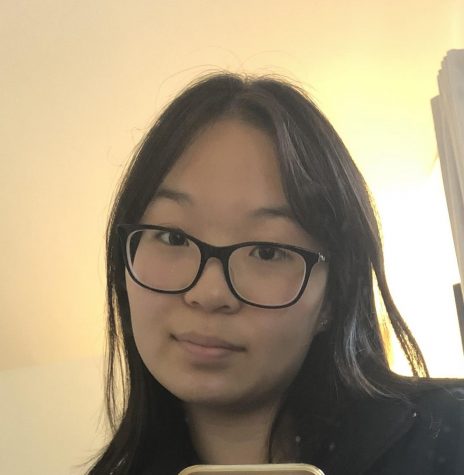Coronavirus and Racism in the United States
March 31, 2020
Two Asian men were refused service at a Super 8 hotel. An Asian woman was attacked in New York City for being a “diseased b****”. On an LA subway, an angry man launched into an anti-Asian tirade, repeatedly calling Chinese people “filthy”.
COVID-19, commonly referred to as Coronavirus, first emerged in China in December 2019. It is now an international pandemic that can cause cold symptoms, respiratory issues, and in some cases, death.
Coronavirus has consumed the world with fear, panic, and confusion. Along with this chaotic uncertainty comes racism towards Chinese people and Asians alike. “Some people are just looking to assign blame because they don’t understand the situation, they are angry, or they are anxious,” explains Rob Fogel ‘21.
From these preconceived notions, misinformation and racism have spread across the United States, and dozens of incidents of anti-Asian hate, both verbal and physical, have gone viral on social media. “It’s basic misinformation that is causing [more] people to blame others. If they had a deeper understanding of corona, they probably wouldn’t be so quick to blame China,” said Romir Srivastava ‘23.
On an international level, Asians feel attacked and slandered as more instances of racism appear throughout the news and on social media. “Social media platforms are a huge issue [in terms of spreading racism] because people are hiding behind their screens and saying things that they’d be too afraid to say in a typical social situation,” noted Rob Fogel ‘21. Controversial posts have exploded with hundreds of comments both attacking and defending racist views.
And since many advocate that COVID-19 originated from people eating bats in Wuhan, the press has been quick to blame the coronavirus on China. President Donald Trump has used the term “China virus” or “the Chinese virus” in his speeches instead of “coronavirus” or “COVID-19”. When questioned by a reporter as to why he uses the term, he explained that “it came from China.” Other officials have been quick to defend Trump from accusations of xenophobia. “China is to blame,” remarked Sen. John Cornyn, R-Texas. “Because [of] the culture where people eat bats and snakes and dogs and things like that.” Cornyn chose to generalize and stereotype Chinese culture as one that eats “filthy, diseased” animals regularly. However, most Chinese people typically don’t eat these types of animals, and Cornyn’s comments play into the common stereotype that Chinese people eat their pets. Rhetorics like this play a direct part in influencing the public to believe that these comments are appropriate. “The way that public officials and government officials act does influence how the public at large acts. If we condone [public officials] to act in a discriminatory way, then that influences the idea that it is acceptable to act this way,” said Vivian Guo ‘21.
This mentality can also be seen in Scarsdale. On Tuesday, March 10, the Scarsdale Town Council invited Harish Moorjani, an infectious disease specialist, to come speak to the town regarding Coronavirus. A few of his comments made against Chinese people were very controversial, and the Chinese Community in Scarsdale was outraged by his comments. In protest, many Chinese residents went to the site where Moorjani was making the speech. “After I came back from work, I joined the public hearing of the Trustee meeting at 8 pm. I also spoke at the meeting among many other speakers from Chinese community,” said an anonymous SHS parent who went to the meeting in protest. “I think our actions definitely helped to raise awareness […] and reduce the influence of a biased speech,” the parent continued. Mayor Samwick sincerely apologized at the meeting about his oversight and later published an open letter to Chinese residents in order to remedy the situation.
While many are shocked at the recent outburst of racism towards Asians, Guo ‘21 says “[…] the racism is something fermented in how we think and how [we] structure the world. So I feel like [notions of] Asian Americans are constantly shifting between this idea of being ‘oh, the perfect minority kid who is always studying and hardworking’ and as soon as something vaguely threatening arrives, then they turn into this perpetual foreigner.”
This underlying racism not only includes Asians, but all other minorities too. “It’s saddening for me I would say because it’s one of those things where America is supposed to be a country of immigrants, right, we’re supposed to be a country of diversity where people are equal, where people are respected. But I feel like there are so many instances that I can think of throughout history where people blanket statement blame another race. […] I think that same rhetoric happens over and over again throughout history.” said Aanya Schoetz ‘21.
Too often in society do people overlook or desensitize racism and the racism coming from the outbreak of coronavirus should serve to teach us that not only must we make sure we do not blame each other in this time of crisis, but that we should also be vigilant in reducing regular, day-to-day racism.



